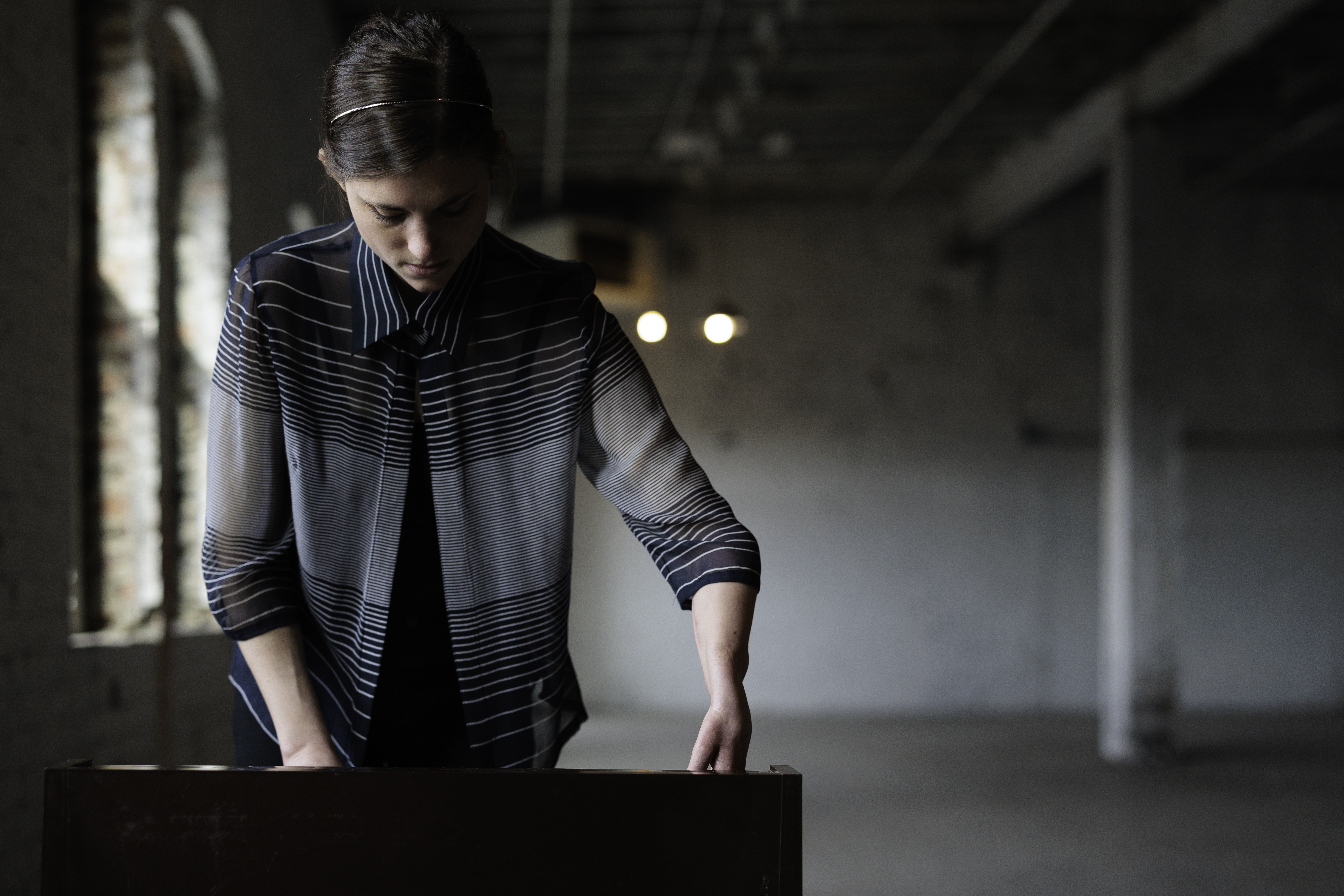Alumni spotlight: composer Molly Joyce
Meet composer and performer Molly Joyce ’17MM, whom The Washington Post said is “among … the most versatile, prolific and intriguing composers working under the vast new-music dome.” As her website explains, Molly “has an impaired left hand from a previous car accident, and seeks to explore disability through composition, performance, collaboration, community engagement, and further mediums.” Molly’s work has been commissioned and performed by the Milwaukee Symphony Orchestra, Pittsburgh Symphony Orchestra, and New World Symphony, among other ensembles, and she has collaborated with such compelling artists as dancer and choreographer Melissa Barak, dancer Jerron Herman, media artist Andy Slater, and Glenn Kotche of Wilco. We spoke with Molly about her work, inspiration, and more.
Q: How did your time at Yale help catalyze your work at the intersection of art and disability activism?
My time at Yale was critical for opening the door to art and disability activism for me. During my first semester, I enrolled in Sebastian Ruth's "Music, Service, and Society" course, where he involved the writings of Grace Lee Boggs, John Dewey, Maxine Greene, and more. Specifically, the writings of Dewey that contemplate the artist’s role in society and as the artist providing an individual lens to a greater truth were instrumental in contemplating the role of my practice within society. I started to have greater reflections on my experience of disability and especially acquiring a disability. I reflected on how my impaired hand influences my daily and long-term interactions with the world, and how I could pursue this more in my artistic work. Once I started contemplating this, I realized that I was always heading in this direction in my work, with more physically motivated pieces and works informed by binary concepts, stemming from my direct, embodied experience with binaries of my two physically different hands. This process was also motivated by performing on my toy organ more at Yale, and realizing how it was seemingly made for my body.
Q: Where, beyond the field of music, have you found inspiration for your artistic activism?
Certainly the world of disability arts and activism. I've been fortunate to learn from artists across disciplines who are embracing disability in their work, such as media artist Andy Slater and dancer Jerron Herman. I've also been fortunate to learn from disabled activists and scholars such as Judy Heumann and Stefan Sunandan Honisch.
Q: Talk if you would about the importance of the toy piano to your work.
The toy organ is my favorite instrument. I bought it on eBay during undergraduate studies, and I viewed it as an accessory or toy for a while. I thought it was too limited in musical range and sound capability to be significant for my artistic output. The organ has 12 chord buttons on the left-hand side and a three-octave keyboard component on the right-hand side. I viewed its range as too limited and the sound as too dry, as there is no sustain pedal (unlike most pianos and keyboards). For this reason, initially when I played the organ, it was usually with dancers and other musicians. However, my approach changed once I started at Yale. Upon playing the organ more and contemplating the social role of my artistic practice, especially from a personal, individualized perspective and with formative influences such as John Dewey and Sebastian Ruth, I realized that the organ was made for my body. The chord buttons on the left-hand side fit my left hand very well, especially as they either press forward or backward and do not require much dexterity in the hand, which my left hand does not have. This realization motivated me to pursue writing for and performing on the organ more and more. I believe that this progression of embracing my organ more and more, from an accessory to a priority, parallels the progression with the gradual embracement of my disability, from that of a hidden entity to a shared identity.
Q: What are you reading, watching, and/or listening to that you find particularly inspiring?
Anything and everything—Beyoncé’s and Taylor Swift's recent albums ( I'm very excited to see them both live later this year!), the World Cup, UVA basketball, and scholarship around audio justice.
Q: What interests are you pursuing outside of the arts?
Speaking and specifically writing about disabled artists balancing family and artistry. I also enjoy trying different forms of exercise, from biking to swimming to running, and spending time with my family, especially my two nephews.






